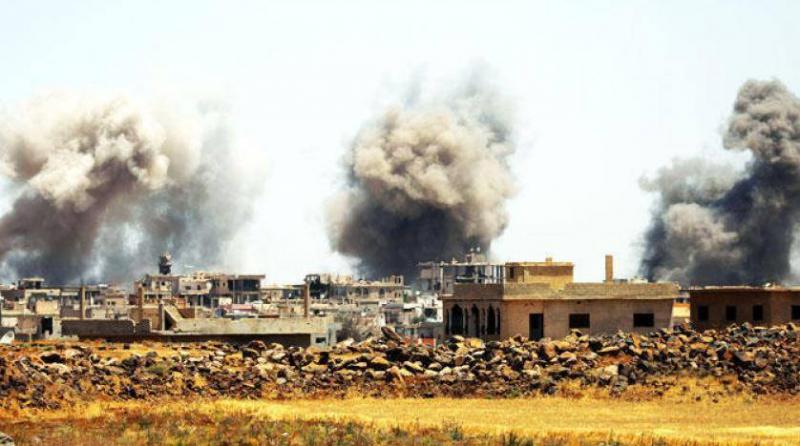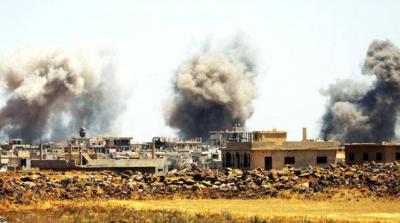Units of the Syrian army, supported by Iranian-backed factions, resumed shelling of an opposition pocket in southern Syria on Sunday following the collapse of a Russian-brokered agreement that aimed to allow the government to regain full control of the area. Russian generals mediated the agreement, reached late last Tuesday, to avoid a bloody urban war after the most intense shelling conducted by elite forces on opposition-controlled areas in Dara city during a two-month siege that forced many of the 50,000 residents to flee.
The agreement fell apart on Friday due to disagreements regarding the extent of army control and the disarmament of those formerly in opposition. This region was the cradle of peaceful protests against President Bashar al-Assad and his family's rule in 2011, which were met with force before spreading throughout the country and evolving into a civil war.
The opposition and influential local figures rejected new demands from the army on Friday to set up checkpoints in residential neighborhoods of Daraa al-Balad and conduct house-to-house searches, stating that the agreement allowed for less of a presence when the state asserts control over the area. They also said that Russian military police should patrol to prevent the armed factions that surrounded the pocket from entering.
Adnan Al-Masalmeh, spokesperson for the negotiation committee in Daraa al-Balad, told Reuters, "These new demands put forward by the regime and the Russians are impossible. We have reached an impasse." Government forces, backed by Russian airpower and militias, regained control over Daraa province in 2018. At that time, Moscow assured Israel and the United States that it would prevent Iran-backed militias from infiltrating the border area.
The agreement forced dozens of Western-backed opposition fighters to surrender heavy weapons but prevented Assad’s forces from entering Daraa al-Balad. The army stated on Sunday that it had prepared buses to evacuate opposition fighters opposing the agreement to an area in northwestern Syria controlled by Turkey-backed fighters. A military spokesperson accused the opposition fighters of failing to honor their commitments and asserted that the army insists on full control of the area and will not return to a state of chaos and lawlessness.
Local negotiators reported that thousands of former opposition fighters, civilians, and their families insist on not leaving except to Turkey or Jordan, which are considered safe havens. Since the state regained control over the area, protests against Assad’s authoritarian rule have occurred in the pocket and nearby towns, which is a rare occurrence in areas under state control.




